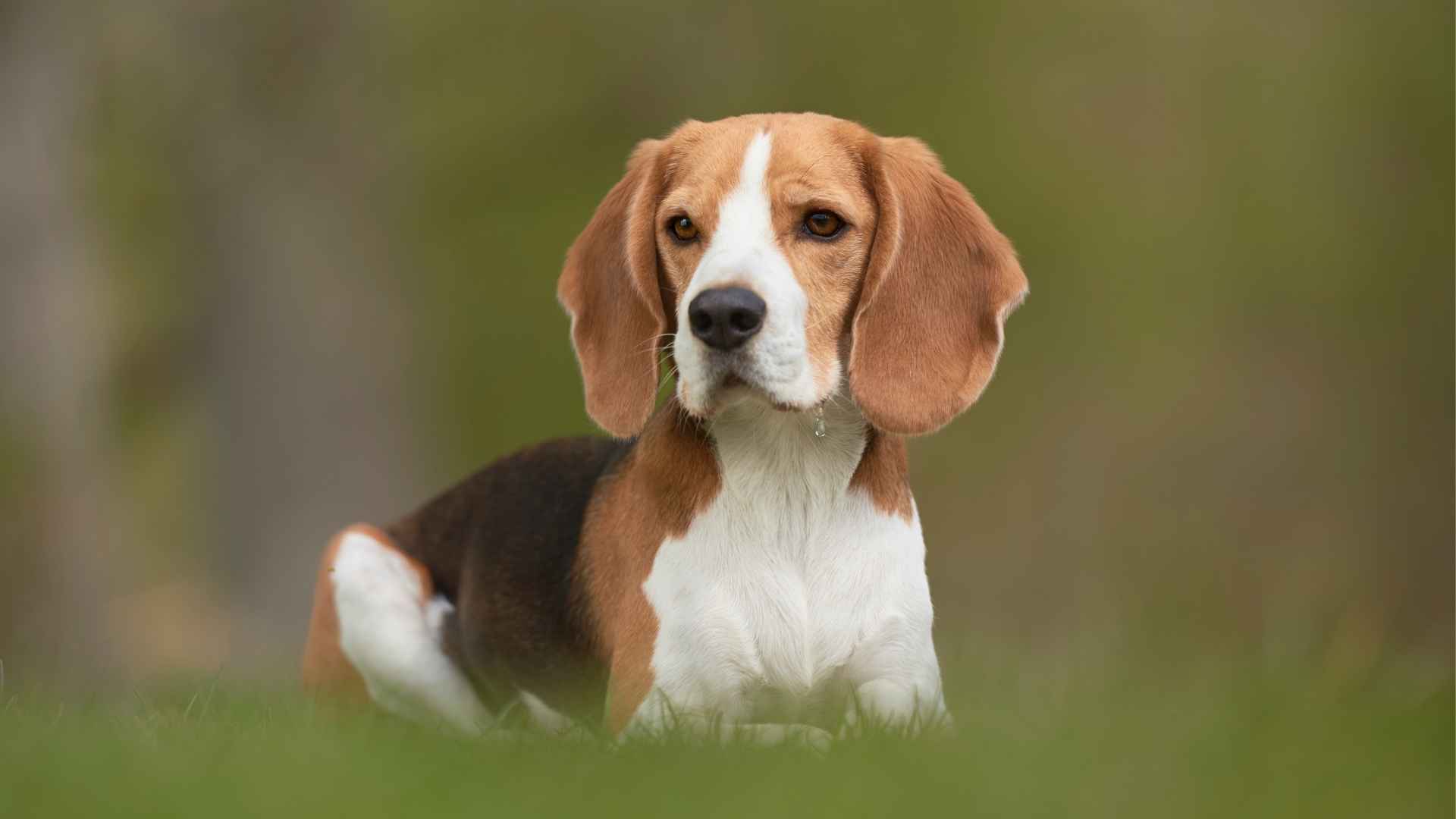Guard dogs have an instinct to protect their home and family. They are fearless, strong, and vigilant. People adopt them for protection and to keep away the potential intruders. However, not every breed is a good fit for this role.
Some pooches are too friendly to serve as protection dogs. They lack alertness and aloofness towards strangers. While they may be highly intelligent or large in size, they lack protective instincts that are a hallmark of guard dogs.
Instead of warning off the unfamiliar people, these doggos will welcome them with smiling faces and wagging tails. They might not be the effective protectors, but they are very loyal to their humans and form strong bonds with them.
Here are the 7 worst dog breeds for guarding your home.
Worst Dog Breeds For Guarding Your Home
1. Labrador Retriever
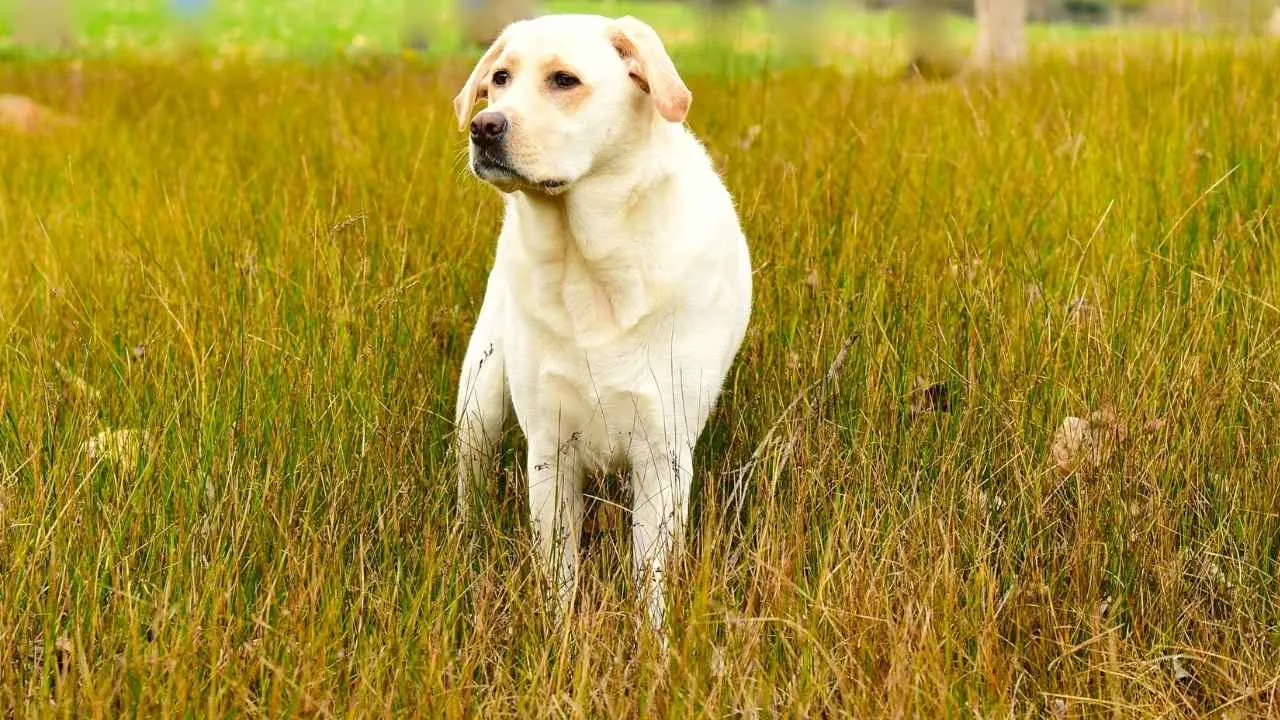
Labrador Retrievers are friendly dogs known for their outgoing nature and willingness to please. While Labs excel in their roles as service dogs, therapy dogs, and family pets, their lack of aggression makes them poor guard dogs.
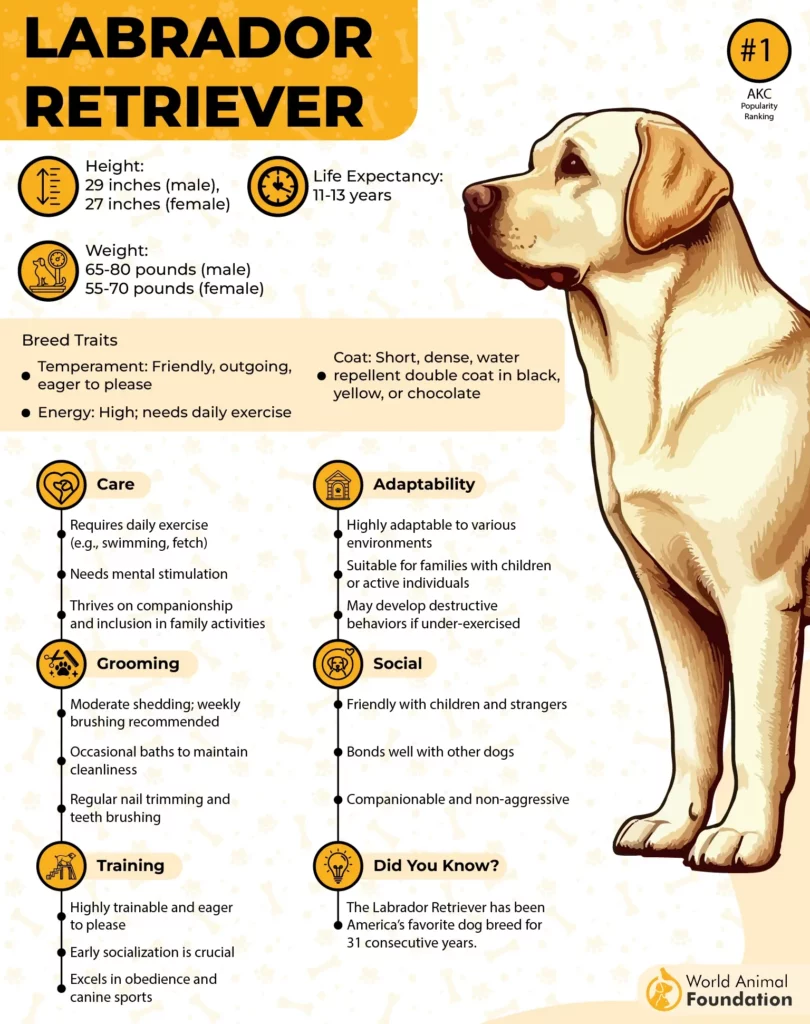
Labradors are so social that they will happily greet strangers instead of being suspicious of them. They are highly intelligent and trainable, but they lack the instincts to serve as protection dogs. Labs mainly focus on making their owners happy and forming strong bonds with them.
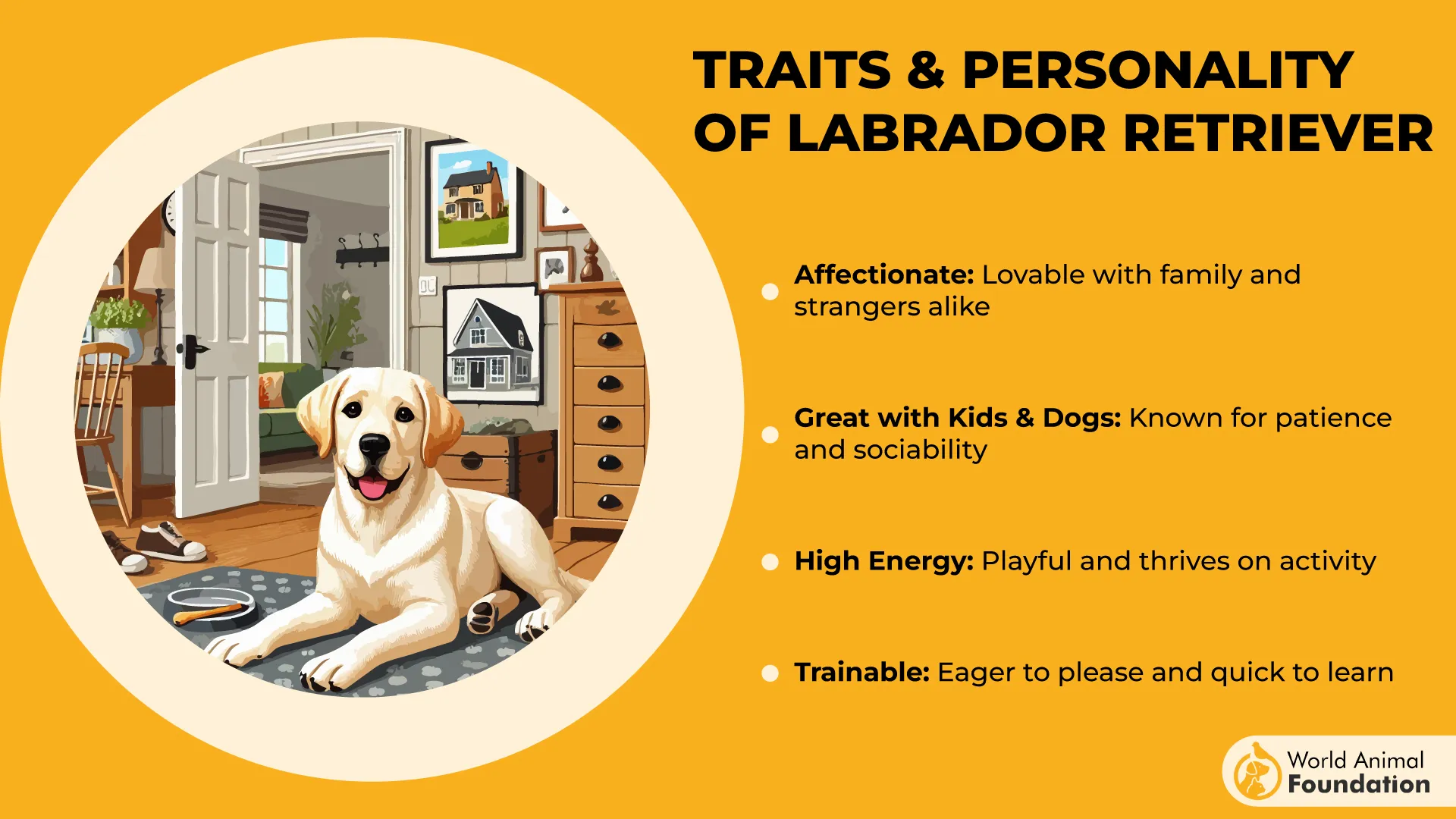
While it may not be the first breed to come to your mind when you think of guard dogs, Labs may not directly engage with the intruders or other potential threats, but they are highly attentive to their surroundings.
2. Golden Retriever
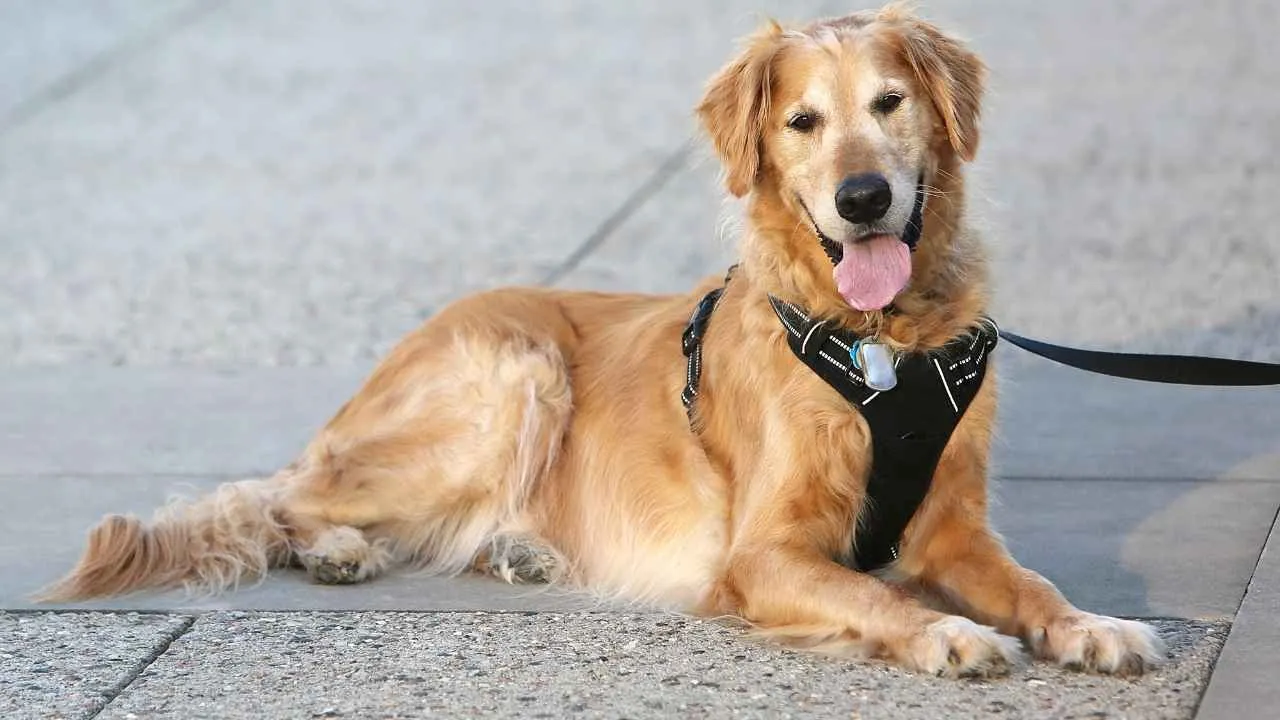
Goldens will melt hearts with their friendly disposition, loyal nature, and gentle charm. These loving pets are great with kids and other pets, and even strangers. Lack of standoffishness towards strangers makes them unsuitable for the role of a guard dog.

While they may not be the typical personal protection dogs, Golden Retrievers shine in many other ways. They possess keen observational skills and can detect subtle changes in their environment. Plus, their loving nature makes them highly protective of their family members.
Despite lacking aggression, their size and deep voice can serve as an effective warning tool for unwanted visitors. Goldens form warm bonds with their owners. Their people-pleasing nature and exceptional obedience make them perfect for training.
Due to their high trainability, Goldens have been serving as search-and-rescue pups, therapy dogs, and guide dogs for the blind.
3. Beagle
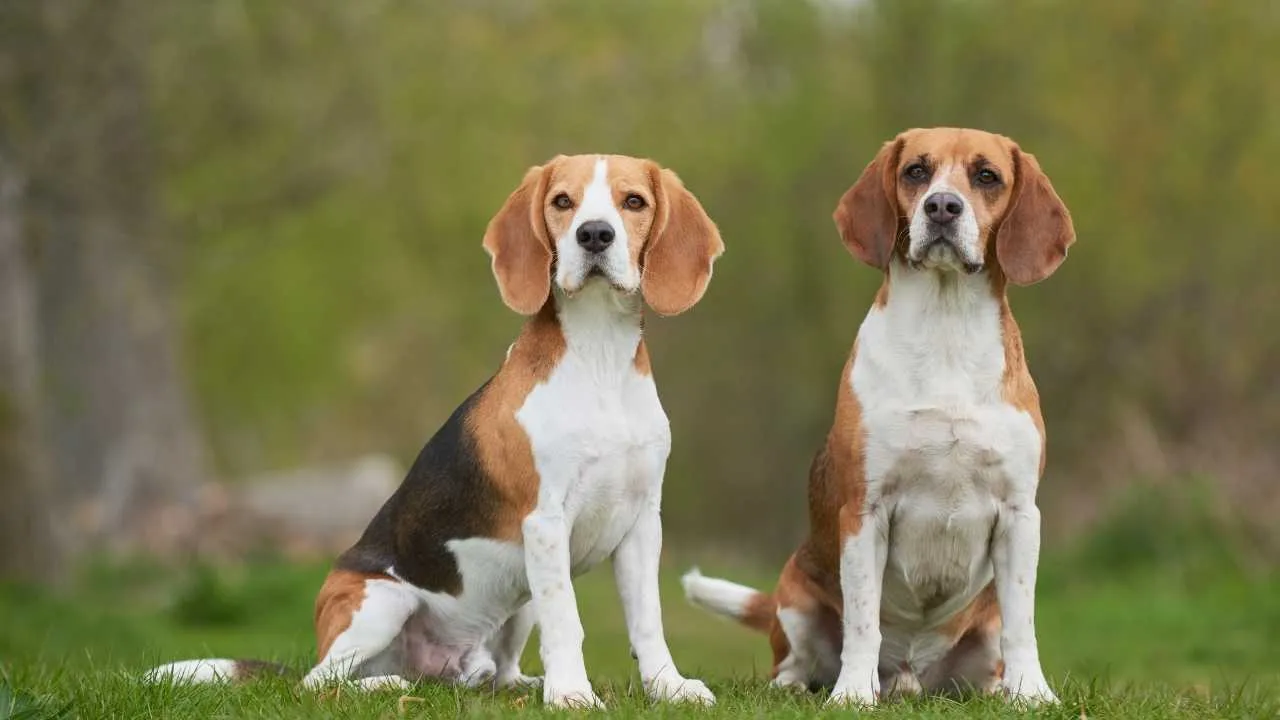
Beagles are curious dogs blessed with an extraordinary scent-tracking ability and a cheerful disposition. They are alert, energetic, and quite vocal by nature.
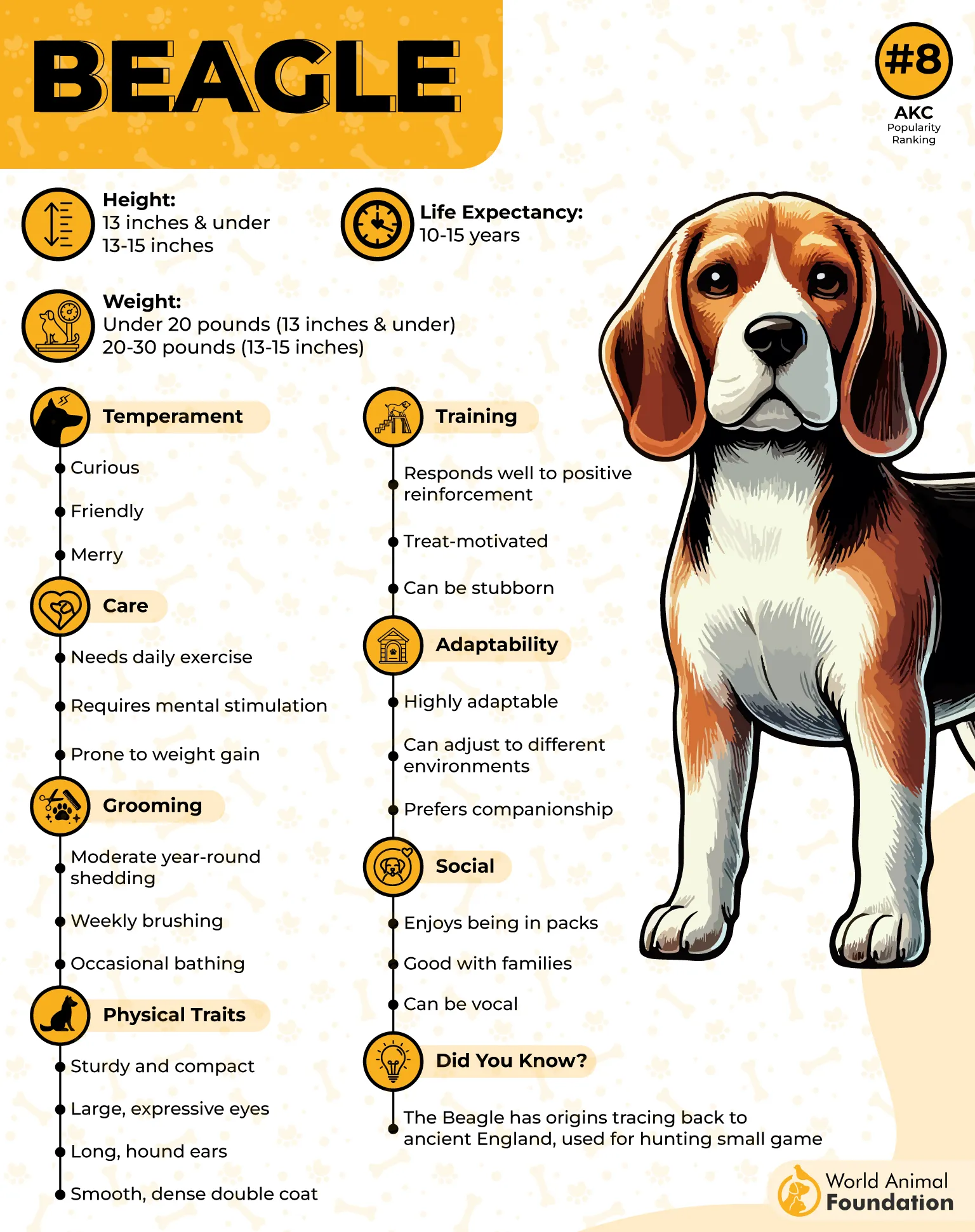
However, Britannica explains that Beagles are fairly good watchdogs, but poor protection dogs. Their compact build and friendly demeanor make them ill-suited for guarding roles. When a stranger approaches, Beagles are more likely to wag their tail out of curiosity, instead of acting defensively.
However, their loud baying sound acts as a useful alert system against potential threats. If you are looking for a loving and social companion, Beagles can be a great choice. But they are not ideal for someone who needs a guard dog.
Beagles were originally bred as hunting dogs, so they are capable of detecting scents that humans cannot. Due to this, they are often used in law enforcement and other security settings to detect contraband.
4. Cavalier King Charles Spaniel
Cavalier King Charles Spaniels are loving and affectionate lap dogs who were bred as companions for British royalty. One of the few factors that make them unsuitable as guard dogs is their small size. According to the AKC, Cavaliers stand no more than 13 inches tall and weigh only 13 to 18 pounds.
Cavaliers love snuggling and spending time with their owners. These people-oriented dogs are gentle with everyone. Cavaliers even greet strangers with wagging tails and friendly enthusiasm instead of suspicion or aggression.
These traits make Cavaliers wonderful family dogs. They may not possess the fierce protective instincts of a guard dog, but they will surprise you with their courage and loyalty.
A Cavalier’s small size and trusting nature make it defenseless even against genuine threats. In fact, they are more likely to seek attention and affection from strangers.
5. Basset Hound
Basset Hounds are gentle and affectionate companions recognized by their droopy face and long ears. One of the friendliest dog breeds, they are not natural guard dogs but are protective of their loved ones. Their laid-back nature and welcoming personality make them great with everyone.
Basset Hounds are relaxed pooches who love companionship and bond firmly with their owners. They are great with children and other dogs. According to Hill’s Pet, Basset Hounds may bark initially, but then greet strangers happily. They do not make great watchdogs.
Bassets may let out a resonant bark if someone approaches the house, but they are more likely to sit back and observe the situation instead of taking action. You can teach your Basset Hound some basic protection commands.
Pro Tip: Use commands like “watch” to train your dog to focus on a potential threat. It can be a fun way to engage their instincts.
6. French Bulldog
These wrinkled-faced mini clowns are quite affectionate and sweet-natured. French Bulldogs, also known as Frenchies, are usually very quiet. They keep a keen eye and ear out for visitors and will bark with gusto when someone is at the door. Frenchies make excellent watchdogs.
While they will always let you know when the mailman or a friend arrives, Frenchies are not good guard dogs. Their small stature, friendly nature, and lack of a resonant bark make them less effective as protection dogs. Frenchies are known for their laid-back personalities and sociability.
They form tight bonds with their owners and greet strangers with enthusiasm instead of aggression. Frenchies are loyal and a little bit territorial, but lack the typical traits of a guard dog. They are stubborn and independent by nature, so extra time and patience are required to train them.
7. Pug
Pugs are loving and friendly dogs often dubbed as “clowns of the canine world” due to their jovial nature. They will melt your heart with their playful antics, but they were not bred as guardians. They will bark until they are sure you know about the arrival of guests.
They are not considered effective guard dogs, but their natural alertness enables them to quickly respond to potential dangers. Their heightened ability to detect changes in their environment makes them good watchdogs.
They may not be aggressive, but their protective mode is activated when they are around their loved ones. Pugs also physically lack what it takes to be guard dogs. They are brachycephalic, which makes them vulnerable to respiratory issues and unsuitable for strenuous tasks.
Conclusion
Some breeds make excellent guard dogs and will go to any extent to protect their people and their territory. But others lack the physique and temperament required to become effective guardians. They may be excellent watchdogs due to their natural alertness, but they are not suitable as guard dogs.
Even the worst breeds for guarding your possessions and your home are immensely loyal and form strong bonds with their owners. However, their laid-back personalities, gentle nature, and small size make them ill-suited for the role of protection dogs.


